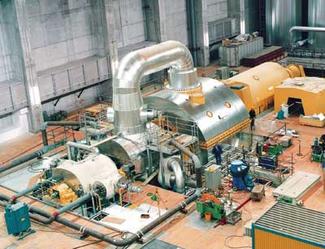State urged to support cogenerated power

The regulatory environment has led cogenerated electricity’s share in the overall mix to drop by nearly 50% over recent years. The industry warns that the lost capacities will be sorely missed in the near future if there are no fundamental changes.
Whereas cogenerated power – electricity produced alongside heat from the same fuel – had a share of 20.9% in the country’s aggregate energy mix in 2010, that figure is set to drop to 10.4% by the end of the year.
The umbrella organization for the industry, Cogen Hungary, warns that the regulations affecting the sector, namely keeping consumer costs artificially low, means that substantial excess capacities are going to waste, which in turn heightens the country’s reliance on imported electricity.
“Investors have spent more than HUF 1 billion on the installation of cogenerating devices since 2004. Letting these capacities go to waste means we will have to pay several times as much to buy equipment needed to fill the gap in the future,” said Cogen Hungary chairman Viktor Rudolf.
The government has tentatively given its backing to high-efficiency cogenerating facilities, but this was verbal rather than anything else. Officials insist on the government’s policies in pricing and stress that the sector must be able to stand on its own in the marketplace, without any support from the state.
Accordingly, the new regulatory scheme introduced in late 2012 withdrew previously existing support from the segment.
The new regulations enforced a pricing regime that puts cogenerators at a competitive disadvantage against traditional power companies. At the time, Cogen Hungary estimated that 80% of the suitable equipment that could produce 2,000 gigawatt hours would be lost from the system.
“In June, the share of imported electricity was 34% in domestic use. This is an unrealistically high figure. The existing cogenerating capacities are already sufficient to make up part of the total,” Rudolf said.
Rudolf says cogen facilities are far more modern and consequently more efficient then many units within the Hungarian power plant stock, several of which will soon have to be phased out. Cogenerators can easily cover the gap they leave but the power they produce could also be stored as strategic reserves to offset the growing demand for imports.
Regulatory bump
Cogen Hungary has hopes for the localization of European Union law regarding principles affecting cogenerating power plants. Rudolf noted that Hungary has to ratify the European Union’s energy efficiency directive by the end of 2015, which highlights cogeneration as a key area.
According to the European Commission, electricity and heat cogeneration installations can achieve energy efficiency levels of around 90%. If the technology is properly developed, its projections show that cogeneration alone could eliminate up to 250 million tons of greenhouse gas emissions in 2020. It notes that certain member states like Belgium, Spain and Germany have already made serious advances in the promotion of cogeneration, by ratifying a separate law on the technology or introducing a related certification system.
Cogeneration enjoys a broad variety of support in the various member states of the EU. According to the European umbrella organization Cogen Europe, the EU currently generates 11% of its electricity using cogeneration. The spread is highly varied. The technology is unknown in Malta, and accounts for only 0.3% in Cyprus. In contrast, Denmark gets 42.8% of its power from parallel production, and Latvia 40.9%.
“Significant potential exists in new EU member states, particularly for refurbishment of district heating schemes and their upgrade to include modern cogeneration where previously only heat was distributed. This is universally the case where a large district heating infrastructure already exists,” Cogen Europe said.
SUPPORT THE BUDAPEST BUSINESS JOURNAL
Producing journalism that is worthy of the name is a costly business. For 27 years, the publishers, editors and reporters of the Budapest Business Journal have striven to bring you business news that works, information that you can trust, that is factual, accurate and presented without fear or favor.
Newspaper organizations across the globe have struggled to find a business model that allows them to continue to excel, without compromising their ability to perform. Most recently, some have experimented with the idea of involving their most important stakeholders, their readers.
We would like to offer that same opportunity to our readers. We would like to invite you to help us deliver the quality business journalism you require. Hit our Support the BBJ button and you can choose the how much and how often you send us your contributions.







